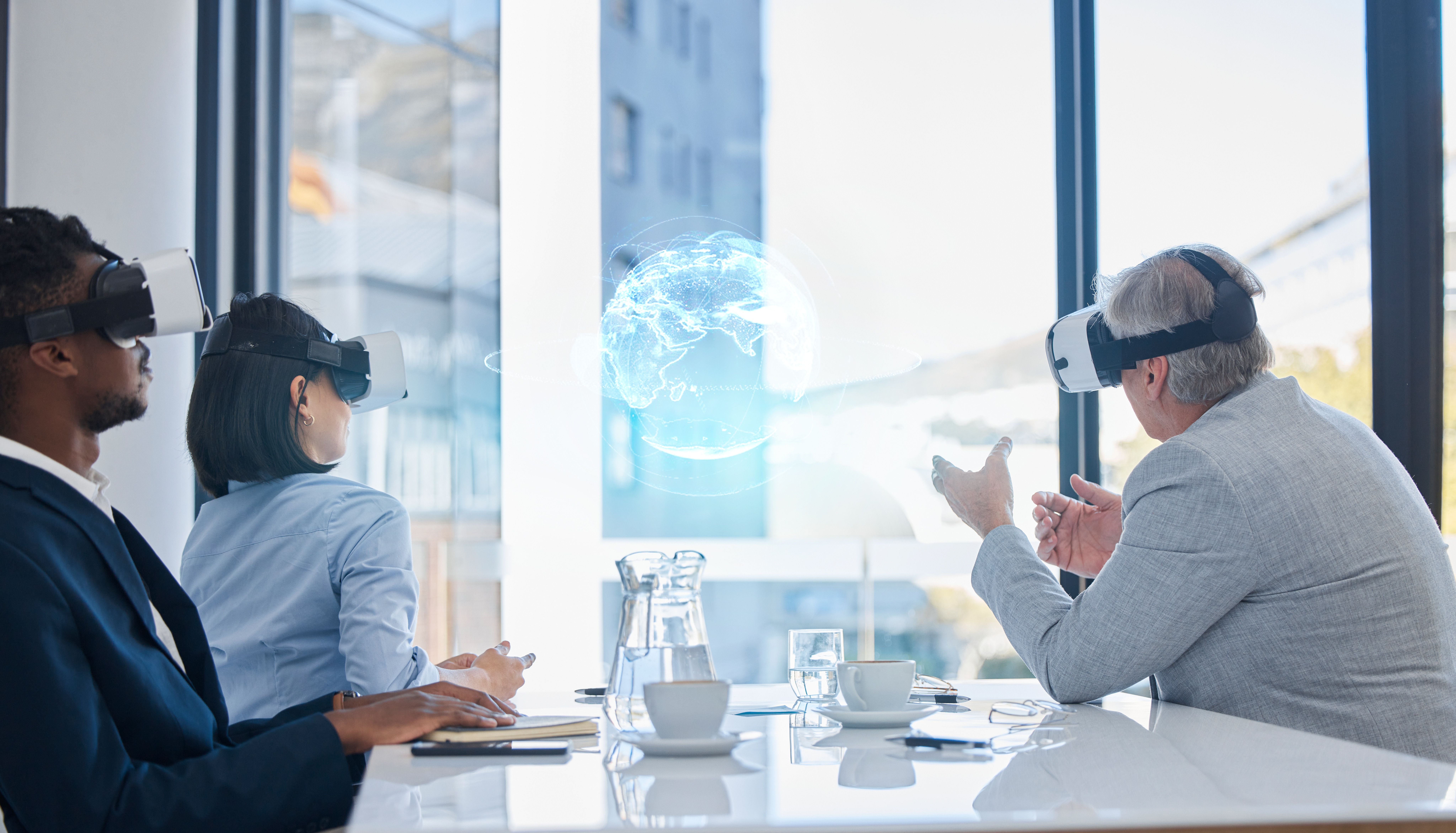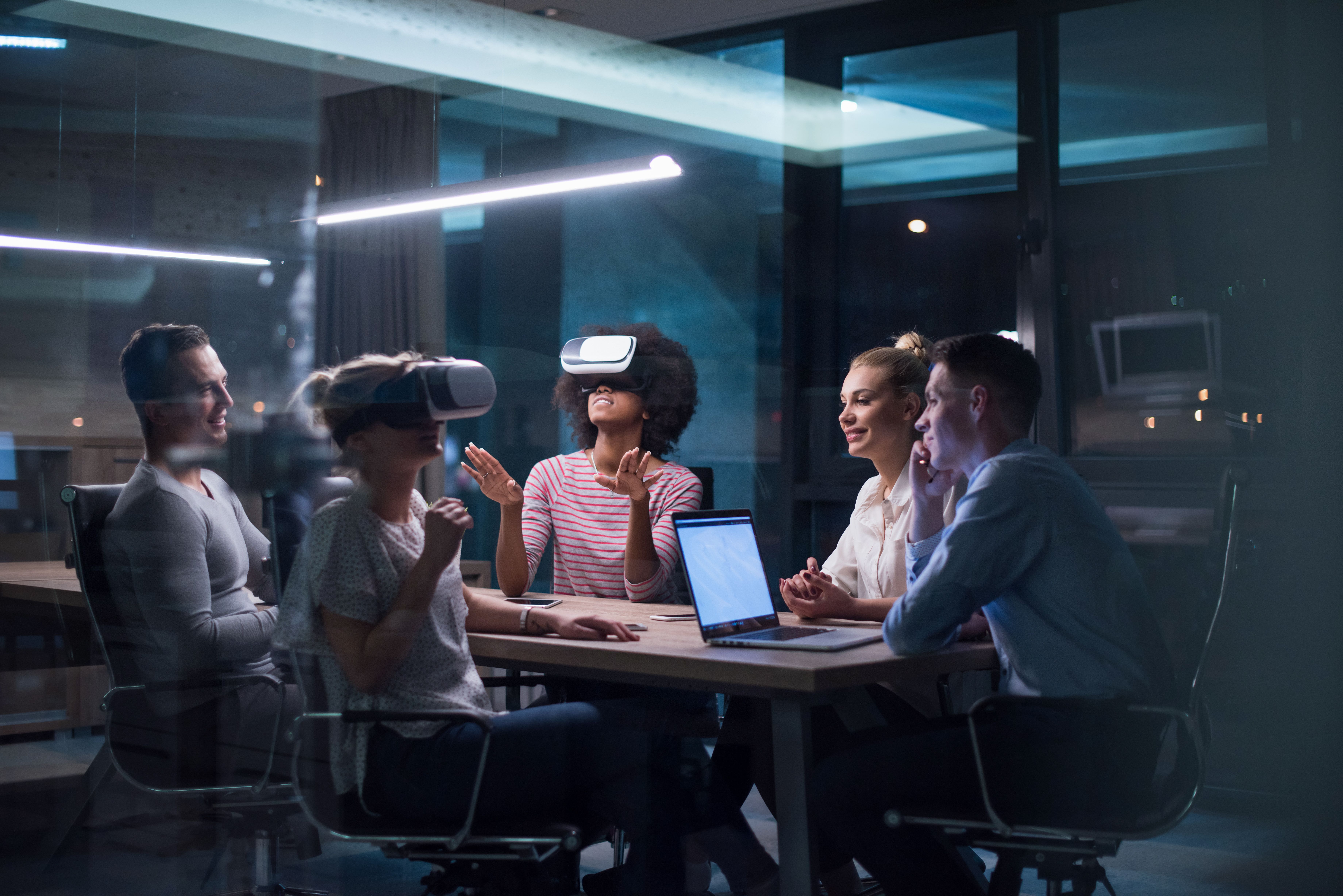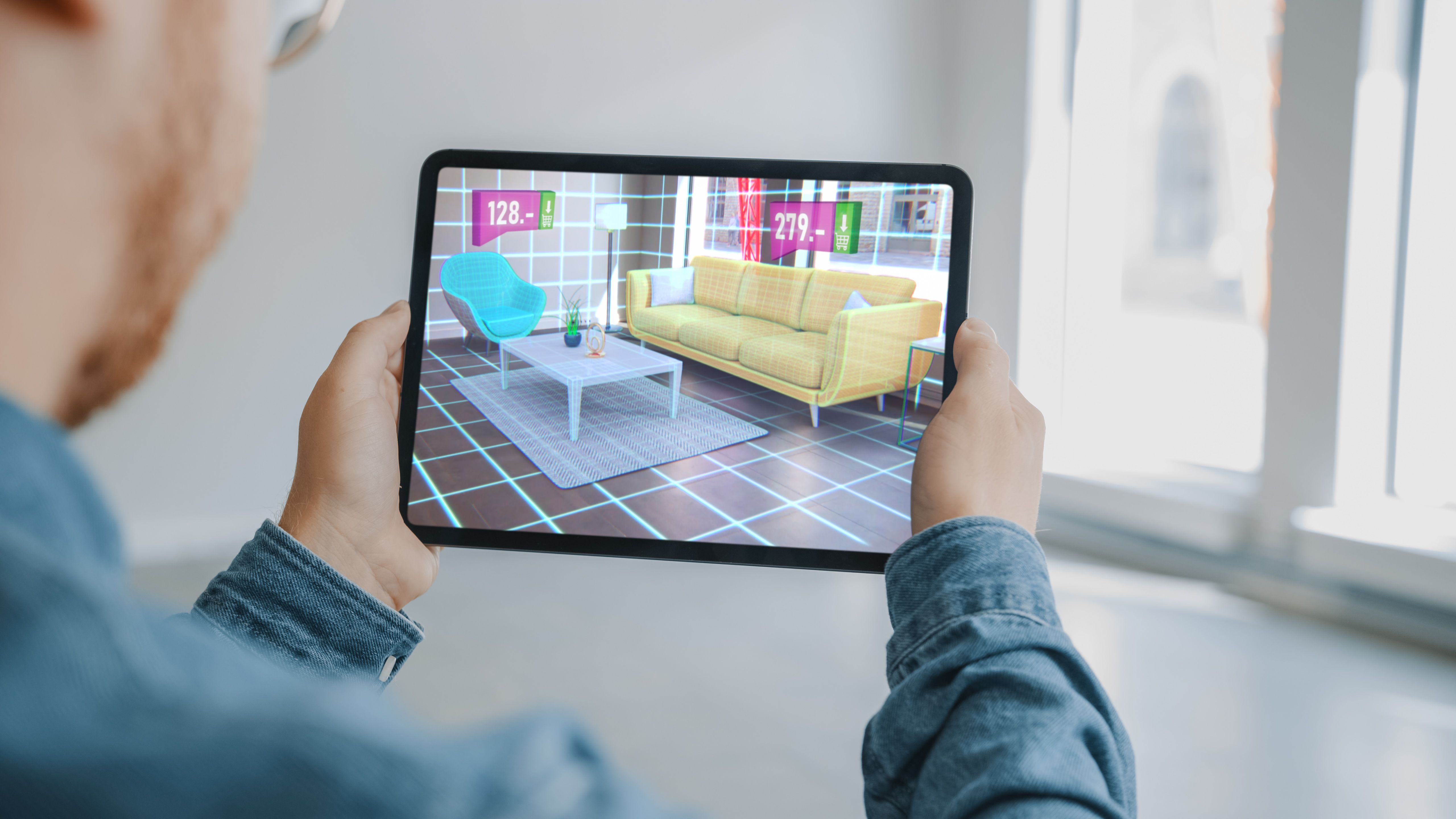Imagine the endless possibilities that virtual reality technologies can offer to your business! From employee training to remote collaboration, product design and prototyping, e-commerce, healthcare, and marketing and advertising, VR can transform entire industries forever. So, if you’re curious about the benefits of VR for these industries, get ready to read this post. We’ll explore the most promising ways virtual reality indefinitely increases your operations’ efficiency and productivity.
Employee Training and Development
One of the most significant applications of VR in business is employee training and career development. Mary K. Pratt notes an increase in the use of virtual reality technologies within (HR) management, mainly due to the potential for realistic training to enhance employee performance.
For instance, VR can be utilized to train employees in high-risk situations that pose a threat to themselves or others. Providing a virtual environment for training facilitates a realistic learning experience that enables them to hone their skills while minimizing the risks involved.
For aspiring surgeons in healthcare and medical schools, comprehending the intricate procedures of life-saving surgeries is crucial. One ingenious solution is utilizing virtual learning programs for healthcare professionals, which have proven successful in enhancing skills with greater ease and precision.
Implementing virtual reality in employee training and development has many benefits, like:
● Reducing the time and cost associated with traditional training methods
● Better learning processes and employee’s understanding of complex procedures
● Enhanced employee engagement, satisfaction, and retention
Remote Collaboration and Conferencing
Remote work is here to stay, and VR can help bridge the gap between employees across the blog
Virtual meeting spaces enable teams to collaborate and communicate more engaging and immersively than traditional video conferencing. With virtual reality, employees can interact with 3D models, share ideas on digital dashboards, and even conduct virtual site visits without leaving their office or home.
3DFrame for Webex can potentially enhance engagement for participants in remote meetings. Vection Technologies' 3DFrame is a user-friendly metaverse application that aids companies in visualizing, planning, and presenting products when in-person meetings are unachievable. If you want to learn more about it, contact us today to get you started.
Product Design and Prototyping
In the automotive, aerospace, and manufacturing industries, VR has opened up a whole new world of possibilities for enhancing the product and prototyping processes. By enabling engineers and designers to create and manipulate 3D models in virtual environments, VR offers:
● Increased flexibility
● Increased accuracy
● The opportunity to identify issues and make changes faster
● Testing new concepts cost-effectively
Furthermore, virtual reality can help reduce the need for physical prototypes, saving time and resources. Additionally, this technology allows for more iterations in shorter time frames.
Retail and E-Commerce
According to Statista, retail and e-commerce sales worldwide crossed 27 trillion US dollars in 2022, and this number is predicted to surpass 30 trillion by 2024. Technology has been instrumental in expanding the retail and e-commerce industry, applied across diverse areas: operations, customer experience, and analytics.
Virtual reality not only supported these areas but also changed how we perceive online and in-store shopping. VR showrooms and fitting rooms allow customers to virtually try on clothes, explore products, and even visualize how furniture would look in homes or offices.
The immersive shopping experience leads to higher customer satisfaction, reduced returns, and increased sales.
Marketing and Sales
VR offers a unique opportunity to businesses to create memorable, interactive marketing and sales campaigns. For instance, brands can craft immersive experiences with VR that allow customers to engage with products or services in new and exciting ways. By doing this, these brands can skyrocket their sales.
Virtual reality has significantly altered the way potential homebuyers browse properties in the real estate industry.
Successful campaigns can now integrate VR technology, allowing buyers to take virtual tours of homes globally from the comfort of their own homes. Moreover, VR technology lets prospects explore rooms in detail, visualize layouts, and get a better feel of the property without being physically present.
What does this mean? Real estate firms can enhance their marketing efforts and improve visibility among a wider pool of buyers thanks to virtual reality. This provides a chance to differentiate themselves from the competition.
Implementing Virtual Reality in Your Company
Do you want to explore innovative solutions to improve your workflows, customer experience, and sales? Implement VR technologies in your company today!
Here are some tips to help you implement virtual reality in your business successfully:
● Assess your company’s needs and goals: What does your business need now? Then, evaluate your goals and how VR technologies can help you achieve them.
● Identify potential use cases for VR in your industry: Explore the various applications of VR in many sectors and identify how virtual reality can benefit your business in terms of efficiency, productivity, and cost-effectiveness.
● Research VR solutions, technologies, and hardware components available: Read product comparisons, blog posts, guides, and customer reviews on the Internet to understand the different VR solutions and determine the most suitable for your company.
● Develop a budget and timeline for implementation: Financial and time investment will ensure a smooth transition to VR technology in your company.
● Contact experts: Do you need more information before making a decision? For comprehensive insights on how virtual technology can enhance your business, it's advisable to collaborate with a company that specializes in extended reality solutions, like Vection Technologies.
Takeaway
Virtual reality is a powerful tool for businesses regardless of size or budget. This revolutionary technology offers advantages that traditional working methods simply can’t match.
In addition to training employees, facilitating collaboration and conferencing in remote settings, designing products, and prototyping effectively, VR can drive retail sales. It can also help companies create captivating marketing campaigns to surpass other competitors in the field.
Integrating virtual reality technology into your business can be beneficial in several ways. It can help you keep up with dynamic markets and industries while gaining a competitive edge when correctly implemented.
Unlock the potential of VR for your company and discover a world of possibilities with us!


